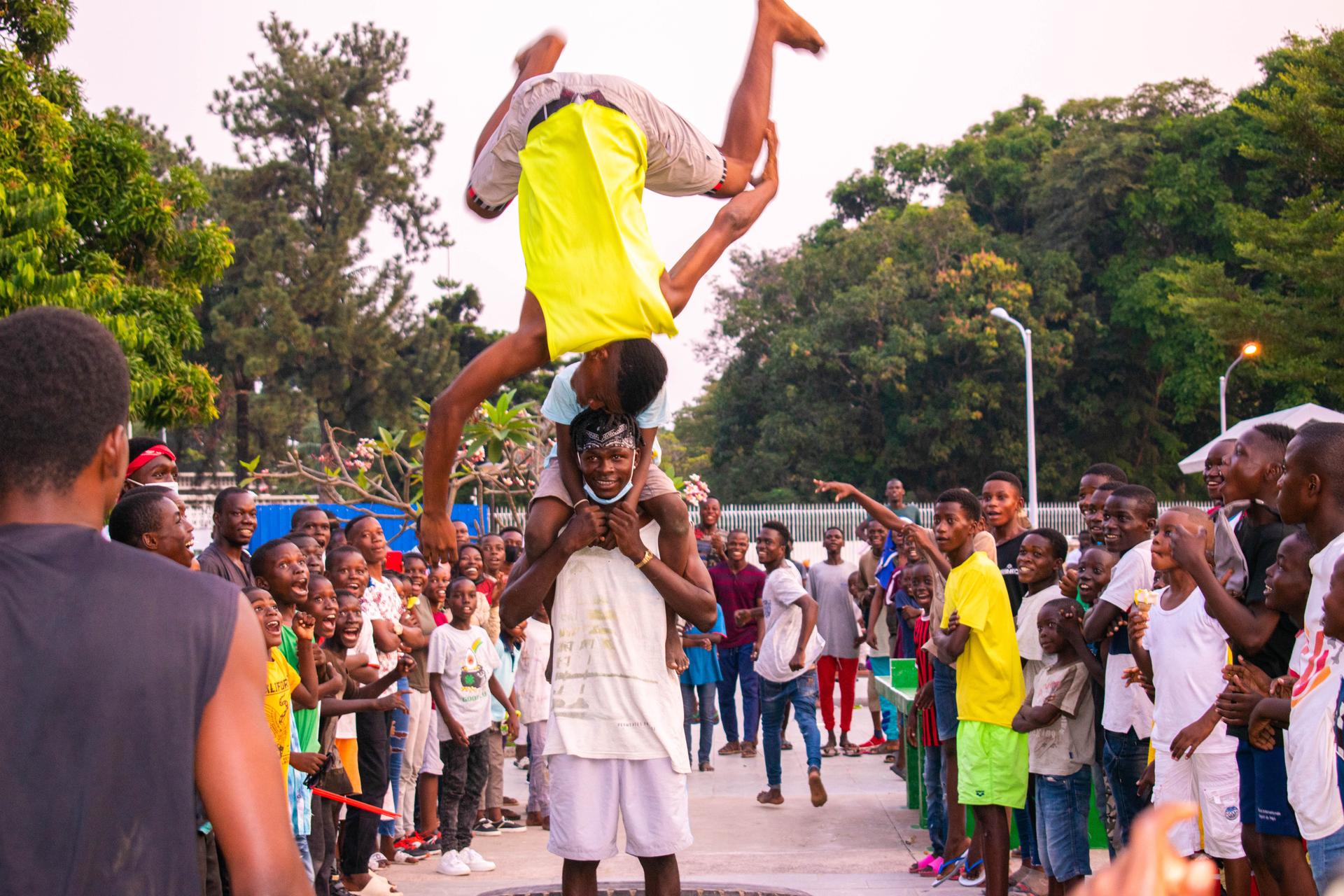Congo🇨🇬

Located in central Africa, the Republic of Congo or Congo Brazzaville lies on the equator and is bordered by five countries - Gabon on the west, Cameroon and Central African Republic on the north, Democratic Republic of Congo on the east and south, and with a small coastline in the west along the Atlantic Ocean. Congo is known for its vibrant culture, festivals, music and dance. The main attraction in Congo is the natural landscape, with verdant rainforests, numerous rivers, and the second largest rainforest area in the world after Amazon. Congo's rich wildlife in Odzala National Park and the Congo River, the second longest river in Africa, make it a haven for nature lovers.
⚠️Things you should avoid⚠️
- Avoid walking or travelling alone at night due to high crime rates.
- Avoid swimming in freshwater due to the risk of Bilharzia.
- Avoid non-essential travel to the Pool region due to security concerns.
- Avoid discussing sensitive topics such as politics and homosexuality.
- Avoid showing overt signs of wealth to prevent becoming a target of crime.
- Avoid consuming tap water. Only drink bottled or boiled water.
- Avoid participation in political gatherings or demonstrations.
- Avoid taking pictures of government buildings or military installations.
- Avoid going to rural areas without proper medical precautions due to risk of disease.
- Avoid risky sexual behavior due to high prevalence of HIV/AIDS.
Overall
3
Crime 🔫
3
Congo faces a serious issue of crime, especially in its capital Brazzaville and the city of Pointe-Noire. What largely contributes to the crime rate is the presence of armed groups and the high rate of poverty in the country. Armed robbery, burglary and vehicle thefts are commonly reported crimes.
Terrorism 💣
4
Despite the terrorism risk is relatively low in Congo, there have been incidents documented, usually linked to conflicts in the Pool region between rebels and government forces. One such incident is the violence in 2017, causing significant displacement of populations.
War ⚔️
2
Congo has a history of internal conflicts. Various armed groups have fought against government forces, particularly in the Pool region. For instance, conflict in 1997 led by the ‘Ninja’ insurgents resulted in widespread violence and displacement.
Natural Disasters 🌊
6
The risk of natural disasters such as earthquakes or landslides is relatively low in Congo. However, due to its geographical location and tropical climate, Congo is susceptible to annual floods during the wet season, impacting infrastructure and displacing populations.
Medical Care 🏥
3
Medical facilities in Congo are limited in number and scope of services. While basic health care is available, most complex medical problems require evacuation to a country with more advanced medical facilities.
Tap Water Quality 💧
2
The quality of tap water in Congo is generally poor. Access to clean drinking water is a major issue, particularly in rural areas. It is advisable to drink only bottled or boiled water.
Disease Burden 🤒
3
Congo has a high disease burden with prevalent diseases including malaria, HIV/AIDS, and tuberculosis. Outbreaks of diseases like Cholera, Yellow Fever and Ebola have also been reported.
Corruption 💸
2
Corruption is very prominent in Congo. It affects various sectors including law enforcement, judiciary, and public services like education and health care.
Safety for Women ♀️
4
Although Congo has progressive laws regarding women rights, enforcement lacks and societal attitudes still pose challenges to women's safety. Violent crimes against women, including domestic violence and rape, are reported.
Safety for Queer People 👬
3
While homosexuality is not illegal in Congo, societal discrimination against LGBTQ+ people persists, impacting their safety and leading to a reluctance in reporting crimes to the police.
Censorship 📺
4
Congo has restrictions on freedom of expression, including censorship of media and the internet, particularly during political events.
Public Transportation 🚌
5
Congo's public transportation system is somewhat limited with buses and taxis major modes of transport. Safety can be of concern due to poor vehicle maintenance and risky driving behaviors. There have been reports of accidents and road fatalities.
Other useful information
🔒 How safe is it?
Safety in Congo varies by area. Crime is a concern, particularly in cities like Brazzaville and Pointe-Noire. Political instability and conflicts, especially in the Pool region, pose additional risk. It is important to take precautionary measures like avoiding non-essential travel to certain regions, managing health risks by taking necessary vaccinations and consuming bottled water, and staying updated on current events.
🏰 Embassies in this Country
Main embassies in Congo are US Embassy in Brazzaville, French Embassy in Brazzaville, and Chinese Embassy in Brazzaville.
💉 Recommended Vaccinations
The CDC recommends vaccinations for Hepatitis A, Hepatitis B, Typhoid, Yellow Fever, Rabies, Meningitis, Polio, Measles, Mumps and Rubella (MMR), Tdap (Tetanus, Diphtheria and Pertussis), Chickenpox, Shingles, Pneumonia and Influenza before travelling to Congo.
🐍 Dangerous Animals
Congo is home to a variety of dangerous wildlife such as gorillas, elephants, lions, leopards, hyenas, poisonous snakes, and crocodiles. It is important to maintain a safe distance from all wildlife.
🛂 Visa Requirements
A visa is required for most foreign visitors to Congo. It is advised to contact the destination's embassy or consulate to get the most current visa information.
💲 Currency
The official currency of Congo is the Central African CFA franc (XAF). Money can be exchanged at banks, hotels, or authorized money changers.
💳 Credit Card Acceptance
Credit card acceptance is limited in Congo, mostly accepted in larger hotels and restaurants. However, ATMs can be found in cities.
🧑🏭 Is it possible to work and travel in this country?
Work opportunities for foreign nationals in Congo are limited and are generally linked to the oil industry, humanitarian organizations, and teaching English. Traveling in Congo can be challenging due to under-developed infrastructure and public transportation.
💵 Cost of Travel and Living
The cost of living in Congo is relatively high compared to other African countries. This is particularly true for accommodation and dining in major cities.